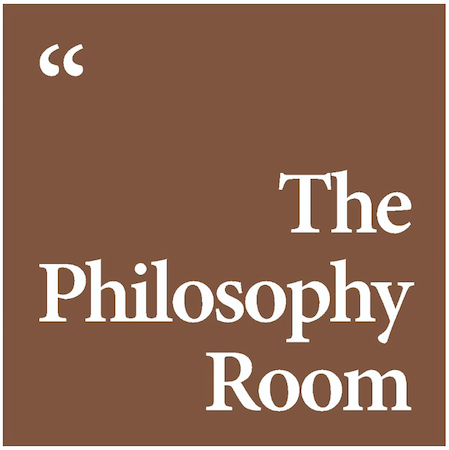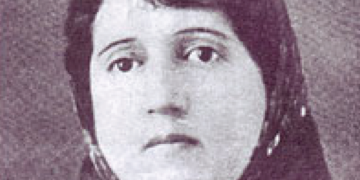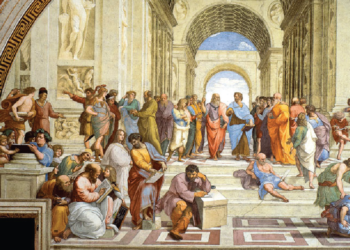Alexandre de Rhodes
1) His Biography
Alexandre de Rhodes, a prominent figure in the history of Vietnamese Catholicism and the spread of Christianity in Southeast Asia, was born in 1591 in Avignon, France. From an early age, he showed a keen interest in languages and cultures, which would later shape his missionary work. After joining the Jesuit order at the age of 20, Rhodes embarked on a journey to Asia, where he would spend the majority of his life.
Arriving in Vietnam in 1624, Alexandre de Rhodes quickly immersed himself in the local culture and language, mastering Vietnamese within a remarkably short period. His linguistic talents extended to other languages spoken in the region, including Chinese and several indigenous dialects. This proficiency not only facilitated his missionary efforts but also earned him respect among the Vietnamese people.
Rhodes’s missionary work in Vietnam was not without challenges. The country, deeply rooted in Confucianism and Buddhism, was initially resistant to the spread of Christianity. However, Rhodes employed various strategies to overcome these obstacles, including the adaptation of Christian teachings to Vietnamese cultural norms and the establishment of schools to educate local children.
One of Rhodes’s most significant contributions was the development of a romanised script for the Vietnamese language, known as Quốc Ngữ. This writing system, based on the Latin alphabet, revolutionised communication and literacy in Vietnam. It provided a more accessible means for the Vietnamese people to access Christian texts and facilitated the spread of Western knowledge throughout the region.
Despite facing opposition from Vietnamese authorities and Buddhist monks, Alexandre de Rhodes remained steadfast in his mission. His efforts bore fruit, as he successfully converted a considerable number of Vietnamese to Christianity and established numerous churches and communities throughout the country. Rhodes’s influence extended beyond Vietnam, as he played a key role in the spread of Christianity to neighbouring regions, including Laos and Cambodia.
In addition to his religious endeavours, Rhodes was also a prolific writer and scholar. He authored several works on Vietnamese language, culture, and history, providing invaluable insights into the society he sought to evangelise. His writings not only served as educational resources for fellow missionaries but also helped to foster greater understanding and appreciation of Vietnamese culture among Europeans.
Alexandre de Rhodes’s legacy endures to this day, both in Vietnam and beyond. The Quốc Ngữ script that he developed remains the official writing system of the Vietnamese language, reflecting his lasting impact on the country’s linguistic landscape. Moreover, his contributions to the spread of Christianity in Southeast Asia continue to be remembered and celebrated by Christians throughout the region.
2) Main Works
Dictionarium Annamiticum Lusitanum et Latinum (Vietnamese-Portuguese-Latin Dictionary):
This seminal work by Alexandre de Rhodes, published in 1651, was the first comprehensive Vietnamese dictionary to be printed using the romanised Quốc Ngữ script. It provided translations and definitions for thousands of Vietnamese words, alongside their equivalents in Portuguese and Latin. The dictionary played a crucial role in bridging the linguistic gap between Vietnamese and European cultures, facilitating communication and understanding between the two.
Cathechismus (Catechism):
Rhodes’s “Cathechismus,” published in 1651, was a key tool in his missionary efforts in Vietnam. Written in Vietnamese using the Quốc Ngữ script, it provided a systematic overview of Christian doctrine and teachings, adapted to the cultural context of Vietnam. The catechism served as a primary instructional resource for new converts to Christianity and played a significant role in spreading the faith throughout the country.
Tonkin or the Wars of Annam (Description du Royaume de Tonquin ou Royaume d’Annam):
Rhodes’s “Tonkin or the Wars of Annam,” published in 1651, offered a detailed account of the history, geography, and customs of the region known as Tonkin (present-day northern Vietnam). Drawing on his extensive travels and observations, Rhodes provided valuable insights into the political landscape of the area, as well as the interactions between the Vietnamese people and European missionaries.
Phép giảng tóm lược (Summary of Preaching):
This work, written by Alexandre de Rhodes in Vietnamese and published in 1652, served as a condensed version of his catechism, aimed at providing a succinct overview of Christian doctrine. “Phép giảng tóm lược” was designed for mass distribution and served as an accessible introduction to Christianity for those unfamiliar with its teachings. It played a significant role in Rhodes’s evangelistic efforts, reaching a wide audience across Vietnam.
Dissertations on the Language and Customs of Vietnam (Dissertation sur la langue et les coutumes du Vietnam):
In this scholarly work, published in 1652, Alexandre de Rhodes delved into the linguistic and cultural aspects of Vietnam, offering detailed analyses of the Vietnamese language, writing system, and societal customs. Drawing on his experiences living among the Vietnamese people, Rhodes provided valuable insights into their language and culture, contributing to a greater understanding of Vietnam among European scholars.
3) Main Themes
Religious Syncretism in Vietnamese Culture:
Alexandre de Rhodes explored the complex interplay between indigenous Vietnamese beliefs and the introduction of Christianity, highlighting the process of syncretism that occurred as a result. He noted how Vietnamese cultural practices and rituals were often intertwined with Christian ceremonies, demonstrating the adaptability of Christianity to local customs.
Rhodes’s observations shed light on the dynamic nature of religious expression in Vietnam, where elements of Confucianism, Buddhism, and folk traditions coexisted with Christian teachings. His emphasis on contextualising Christianity within Vietnamese culture distinguished him from some other missionaries who sought to impose Western religious practices without regard for local customs. This approach facilitated greater acceptance of Christianity among the Vietnamese people, as it resonated more closely with their existing beliefs and practices.
Linguistic Innovation and Cultural Exchange:
Rhodes’s development of the Quốc Ngữ script represented a significant innovation in linguistic and cultural exchange between Europe and Vietnam. By adapting the Latin alphabet to the Vietnamese language, Rhodes not only facilitated the spread of Christianity but also promoted literacy and education among the Vietnamese population. This innovation allowed for greater accessibility to Christian texts and facilitated communication between Vietnamese converts and European missionaries.
Rhodes’s Quốc Ngữ script revolutionised the way Vietnamese was written and read, laying the foundation for modern Vietnamese literacy. In comparison to other missionary efforts that relied on traditional methods of language instruction, Rhodes’s approach demonstrated a willingness to adapt and innovate, resulting in a more profound and lasting impact on Vietnamese society.
Cultural Anthropology and Ethnography:
In his writings, Alexandre de Rhodes demonstrated a keen interest in the customs, traditions, and social structures of Vietnamese society. Through detailed descriptions and analyses, Rhodes provided valuable insights into the daily lives of the Vietnamese people, from their family dynamics to their agricultural practices. His observations went beyond superficial descriptions, delving into the underlying cultural beliefs and values that shaped Vietnamese society.
Rhodes’s work in cultural anthropology and ethnography set him apart from many of his contemporaries, who often approached non-European cultures with a Eurocentric bias. By adopting a more empathetic and respectful stance towards Vietnamese culture, Rhodes fostered greater cross-cultural understanding and appreciation. His contributions to the field of cultural anthropology laid the groundwork for future scholars to explore and document the richness and diversity of Vietnamese culture.
Colonialism and Indigenous Resistance:
Throughout his writings, Alexandre de Rhodes grappled with the complexities of colonialism and its impact on indigenous societies. He observed the tensions that arose between European colonisers, Vietnamese authorities, and local communities, noting the various forms of resistance and adaptation that occurred in response to colonial rule. Rhodes’s nuanced analysis challenged simplistic narratives of European domination, highlighting the agency and resilience of indigenous peoples in the face of external pressures.
His writings shed light on the power dynamics at play in colonial encounters and raised important questions about justice, equality, and cultural autonomy. Rhodes’s perspective on colonialism echoed the critiques of other Enlightenment thinkers who questioned the moral and ethical implications of European expansionism, contributing to broader debates about the legacy of colonialism in Southeast Asia and beyond.
Cross-Cultural Communication and Dialogue:
Central to Alexandre de Rhodes’s mission in Vietnam was the promotion of cross-cultural communication and dialogue between Europeans and Vietnamese. He recognised the importance of understanding and respecting cultural differences in fostering mutual understanding and cooperation. Rhodes actively engaged with Vietnamese scholars, intellectuals, and community leaders, seeking to build bridges of trust and collaboration.
His approach to missionary work emphasised dialogue and exchange rather than coercion or imposition, reflecting a commitment to mutual respect and dignity. Rhodes’s advocacy for cross-cultural communication anticipated the principles of intercultural dialogue that would later emerge in the fields of anthropology and sociology. His efforts to facilitate meaningful encounters between different cultural groups contributed to the enrichment of both Vietnamese and European societies, promoting a more inclusive and interconnected world.
4) Alexandre as Missionary
Alexandre de Rhodes’s role as a missionary in Vietnam was characterised by dedication, innovation, and resilience. Arriving in the country in 1624 as part of the Jesuit mission, Rhodes quickly immersed himself in the local culture and language, recognising the importance of understanding the customs and beliefs of the Vietnamese people in his evangelistic efforts. His linguistic talents, particularly his mastery of Vietnamese, Chinese, and several indigenous dialects, were instrumental in overcoming linguistic barriers and building connections with the local population.
Rhodes’s approach to missionary work was marked by adaptability and innovation. Recognising the need for a more accessible means of communication, he developed the Quốc Ngữ script, a romanised writing system for the Vietnamese language. This innovation revolutionised the dissemination of Christian texts and facilitated greater literacy among the Vietnamese population. By making Christianity more accessible and culturally relevant, Rhodes succeeded in attracting a significant number of converts and establishing thriving Christian communities throughout the country.
Despite facing resistance from Vietnamese authorities and Buddhist monks, Rhodes remained steadfast in his mission. He employed various strategies to navigate the socio-political landscape of Vietnam, including forging alliances with local elites and appealing to the intellectual curiosity of Vietnamese scholars. Rhodes’s commitment to dialogue and engagement helped to mitigate hostility towards Christianity and fostered greater acceptance of the faith among the Vietnamese people.
Rhodes’s missionary work extended beyond Vietnam, as he played a key role in spreading Christianity to neighbouring regions such as Laos and Cambodia. His writings and teachings reached a wide audience across Southeast Asia, contributing to the growth of the Christian community in the region. Rhodes’s missionary zeal and tireless efforts to spread the Gospel earned him widespread recognition and admiration among his fellow missionaries and European supporters.
However, Rhodes’s missionary activities were not without controversy. His success in converting a significant number of Vietnamese to Christianity and his close ties to European colonial powers aroused suspicion and hostility among some Vietnamese authorities. Accusations of political intrigue and subversion led to Rhodes being expelled from Vietnam in 1630, forcing him to continue his missionary work from neighbouring territories.
5) Alexandre as Lexicographer
Alexandre de Rhodes’s legacy as a lexicographer is defined by his groundbreaking work in compiling dictionaries and linguistic resources that played a pivotal role in bridging the gap between European and Vietnamese languages. His most notable contribution in this field was the creation of the “Dictionarium Annamiticum Lusitanum et Latinum” (Vietnamese-Portuguese-Latin Dictionary), which was published in 1651. This dictionary was a remarkable feat of scholarship, providing translations and definitions for thousands of Vietnamese words alongside their equivalents in Portuguese and Latin.
Rhodes’s dictionary was not merely a linguistic tool but also a testament to his deep understanding of Vietnamese culture and society. In addition to providing translations, Rhodes included extensive notes on the cultural context and usage of Vietnamese words, offering valuable insights into the nuances of the language. This holistic approach distinguished Rhodes’s dictionary from previous efforts and laid the foundation for future studies of the Vietnamese language.
One of Rhodes’s most significant contributions to lexicography was his development of the Quốc Ngữ script, a romanised writing system for the Vietnamese language. By adapting the Latin alphabet to Vietnamese phonology, Rhodes created a more accessible and standardized method of writing Vietnamese, which revolutionised literacy and communication in the country. The Quốc Ngữ script facilitated the publication of dictionaries, textbooks, and other educational materials, making it easier for Vietnamese people to learn and engage with their own language.
Rhodes’s expertise in linguistics extended beyond Vietnamese to other languages spoken in Southeast Asia. He compiled dictionaries and grammars for languages such as Chinese, Malay, and Cham, demonstrating his commitment to promoting intercultural understanding and communication in the region. Rhodes’s multilingualism and cross-cultural competence made him a respected authority on Southeast Asian languages and earned him recognition among his contemporaries.
Despite his contributions to lexicography, Rhodes’s work was not without controversy. Some critics questioned the accuracy and completeness of his dictionaries, particularly in areas where his knowledge of Vietnamese may have been limited. Additionally, Rhodes’s close association with European colonial powers led to accusations of cultural imperialism and bias in his linguistic research.
Nevertheless, Rhodes’s dictionaries remain valuable resources for scholars and linguists studying Vietnamese and Southeast Asian languages. His pioneering efforts in compiling and standardizing dictionaries laid the groundwork for future developments in Vietnamese lexicography and contributed to the preservation and promotion of linguistic diversity in the region. Rhodes’s legacy as a lexicographer continues to be celebrated for its impact on language learning, cultural exchange, and intercultural communication in Southeast Asia and beyond.
6) His Legacy
Alexandre de Rhodes left a profound and enduring legacy that continues to influence various aspects of Vietnamese society, culture, and history. Perhaps his most significant legacy lies in his contributions to the spread of Christianity in Vietnam and Southeast Asia. Through his missionary work, Rhodes played a pivotal role in establishing Christian communities and institutions, leaving a lasting imprint on the religious landscape of the region. His efforts to adapt Christian teachings to Vietnamese cultural norms and his development of the Quốc Ngữ script made Christianity more accessible and appealing to the Vietnamese people, shaping the growth and development of the Church in Vietnam for centuries to come.
Rhodes’s impact on the Vietnamese language and literacy is also undeniable. His creation of the Quốc Ngữ script revolutionised Vietnamese writing and reading practices, making literacy more accessible to the general population. The widespread adoption of the Quốc Ngữ script facilitated the dissemination of knowledge and information, contributing to the modernisation and development of Vietnamese society. Rhodes’s linguistic legacy endures in the official status of the Quốc Ngữ script as the primary writing system of the Vietnamese language, symbolising his enduring influence on Vietnamese culture and identity.
In addition to his religious and linguistic contributions, Alexandre de Rhodes left a lasting legacy in the fields of history, anthropology, and ethnography. His writings on Vietnamese culture, customs, and society provide valuable insights into the rich tapestry of Vietnamese history and heritage. Rhodes’s observations and analyses of Vietnamese life continue to be studied and referenced by scholars seeking to understand the complexities of Vietnamese society and culture. His commitment to cross-cultural dialogue and engagement laid the foundation for greater understanding and appreciation of Vietnamese culture among Europeans and contributed to the enrichment of global scholarship on Southeast Asia.
Despite facing opposition and controversy during his lifetime, Alexandre de Rhodes’s legacy has endured through the centuries, inspiring generations of scholars, missionaries, and cultural enthusiasts. His pioneering spirit, linguistic innovations, and cross-cultural empathy continue to serve as guiding principles for those seeking to bridge divides and foster greater understanding between different cultures and communities. Rhodes’s legacy stands as a testament to the power of dialogue, cooperation, and mutual respect in building a more inclusive and interconnected world.












